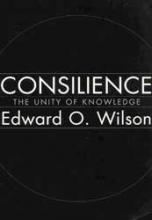The Bahá’í teachings encapsulate an extraordinary breadth of philosophy and spirituality that underscore the intrinsic interconnectedness of all human knowledge and existence. Among these teachings is the principle of Consilience, which illuminates the convergence of various disciplines towards a unified understanding of truth. This concept offers a profound lens through which to examine the expansiveness of human thought and the potential unity of our collective pursuits. But how can a philosophy that encourages the merging of knowledge from diverse fields simultaneously invite us to question the very nature of that unity?
At the heart of Bahá’í teachings is the belief that science and religion are not mutually exclusive; they are complementary forces that together can illuminate the complexities of existence. This fundamental principle underlies the concept of Consilience, which posits that various domains of knowledge—science, philosophy, and spirituality—can coalesce to reveal deeper truths. This synthesis not only enriches our understanding but also propels humanity toward a more holistic worldview.
The idea of Consilience can be traced back to the scholarly implications first articulated by the naturalist Edward O. Wilson, who suggested that the findings of different sciences converge. However, in the Bahá’í context, it extends beyond the empirical and reaches into the realms of morality and spirituality. The Bahá’í perspective encourages individuals to seek this synthesis in their own lives. By fostering interdisciplinary dialogues, one can question whether our current paradigms sufficiently encompass the complexities of existence.
Now, the playful question arises: Can an intricate ballet of science and spirituality, when harmonized through the lens of Consilience, offer a more nuanced comprehension of issues as monumental as global warming, healthcare, or education? And therein lies a challenge. This synthesis does not merely call for an aggregation of knowledge from various fields; it demands an openness to the transformative nature of wisdom and understanding that emerges from such integration.
A practical manifestation of Consilience within Bahá’í teachings can be observed in the multifaceted approach towards education. The Bahá’í writings emphasize the importance of cultivating not only intellectual skills but also moral character. This holistic approach to education recognizes that knowledge devoid of ethical grounding can lead to detrimental outcomes. As such, the Bahá’í paradigm encourages educators to embrace methodologies that integrate scientific inquiry with ethical considerations. Such an educational framework provokes contemplation about the essential qualities of teachers, as they play a crucial role in shaping the morally conscious citizens of tomorrow.
Moreover, the concept of Consilience invites scrutiny of the societal structures that often privilege certain types of knowledge over others, creating cognitive dissonance among individuals who navigate different realms of understanding. Consider, for example, the worker in the medical field who encounters spiritual dilemmas when faced with critical healthcare decisions. The deeply rooted biases towards empirical data can obscure the nuanced moral implications of their work. This raises an important question: How can professionals, guided by Consilience, bridge these gaps in knowledge to embark on a more empathetic approach to their practice?
In a world characterized by rapid technological advancements and globalization, the necessity for a unified understanding becomes all the more pressing. Within Bahá’í teachings, the synthesis fostered by Consilience manifests in various realms, from community development to the promotion of social equity. The principle of oneness necessitates that all people work collaboratively towards shared goals, transcending disciplinary silos that hinder progress.
For instance, consider the systemic issues faced by marginalized communities. Addressing such challenges requires insights from economics, sociology, psychology, and spiritual guidance. A singular approach is insufficient for tackling deeply entrenched societal disparities. The Bahá’í emphasis on global citizenship resonates with the essence of Consilience, calling for a concerted effort to understand the complexities at play and foster systemic change.
Additionally, the Bahá’í teachings advocate for the incorporation of diverse cultural perspectives, recognizing that each tradition may contribute invaluable insights into unity and human flourishing. This cultural consilience enhances our collective endeavor by fostering dialogue among different belief systems. The willingness to engage in conversations that bridge cultural divides is essential in achieving a shared vision of progress and peace.
As we grapple with the multifaceted challenges of the modern world, the essence of Consilience within the Bahá’í teachings becomes an imperative guide. It calls for the dissolution of binary thinking—wherein science and spirituality are seen as opposing forces—towards a more integrated approach. This process invites the realization that every field of inquiry contributes meaningfully to our understanding of truth.
In conclusion, the Bahá’í teachings on Consilience advocate for an expansive, interdisciplinary approach to the quest for knowledge and understanding. By embracing the interconnectedness of various fields, individuals are empowered to confront the complexities of contemporary life with a more profound sense of empathy and insight. The challenge lies not only in merging academic inquiry with spiritual wisdom but also in fostering an ever-growing appetite for unity in understanding. Such a paradigm shift has the potential to elevate not just humanity’s intellectual pursuits but also its moral aspirations.
